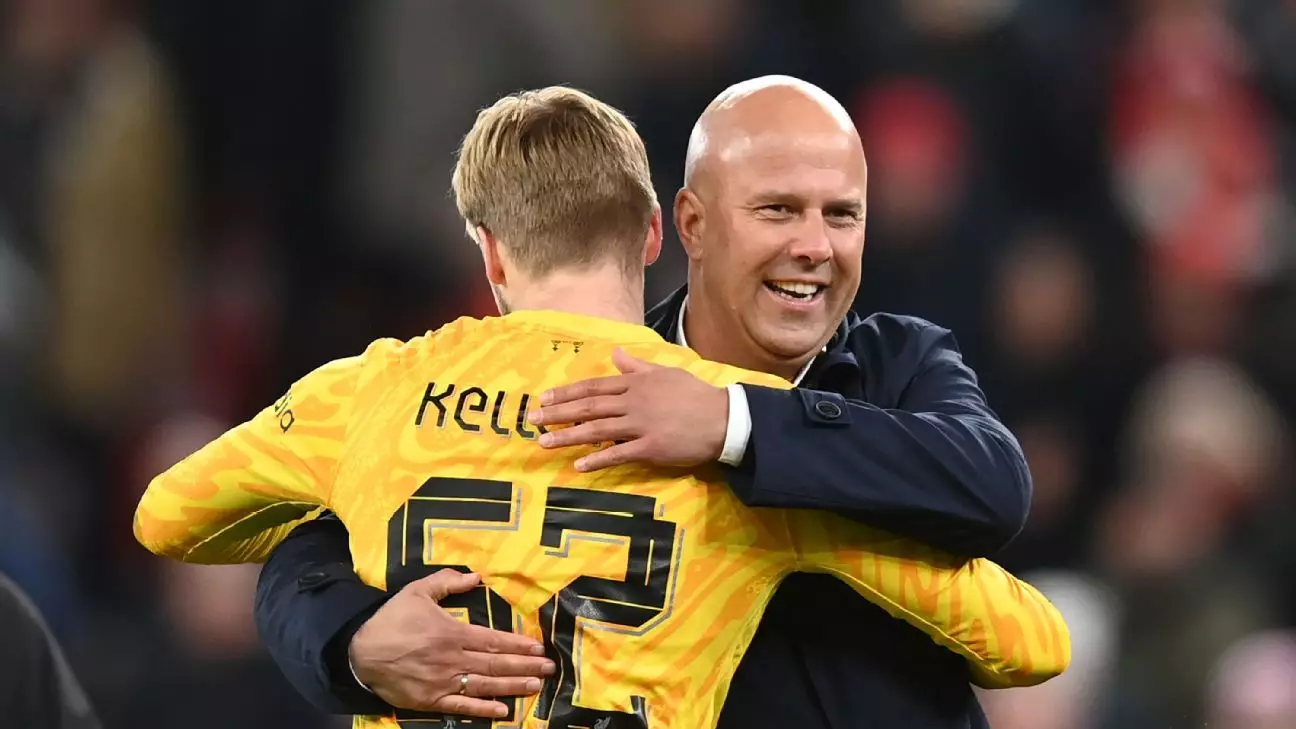In the high-stakes world of Premier League football, every match can turn into a test not only of skill but of resilience. That reality came crashing down for Liverpool’s goalkeeper, Caoimhín Kelleher, after a crucial error in a match against Newcastle United ended in a frustrating 3-3 draw. The incident occurred during a critical moment in the game, highlighting the pressure that comes with being the last line of defense. Manager Arne Slot’s support for Kelleher after the game reflects an understanding of the intrinsic challenges of goalkeeping, especially in high-pressure scenarios where a single misstep can have significant repercussions.
Despite the late-gaming slip, Kelleher’s overall performance showcased his capability as a dependable backup during the absence of first-choice keeper Alisson Becker. Throughout the game at St. James’ Park, Kelleher demonstrated his skill by making crucial saves, notably against Newcastle’s Anthony Gordon. This illustrates the dual nature of a goalkeeper’s job—alternate between heroics and the heavy burden of responsibility. Slot acknowledged Kelleher’s past contributions, which have often bailed out his teammates when defensive vulnerabilities emerged. However, the solitary nature of the goalkeeper’s position means that there is often little recourse for a mistake, as no outfield player can compensate in a meaningful way when a goalkeeper misjudges a situation.
The psychological ramifications of Kelleher’s error became evident in the locker room and in the post-match analysis by Slot. Although disappointed with the dropped points, the team remains united in their belief in Kelleher’s abilities. The remarks made by Slot emphasize a collective mindset that supports rather than blames. A goalkeeping error magnifies the urgency for defensive cohesion, yet Slot’s assertion—that such misjudgments are natural in the game—fosters an environment conducive to growth and resilience. This balance is critical, especially in an era where the pressures of seasonal performance can weigh heavily on young talents like Kelleher.
As the dust settles on the draw with Newcastle, attention turns towards the condition of Alisson. The Brazilian has been sidelined since early October due to a hamstring injury, and Slot’s announcement that his return is imminent provides a glimmer of optimism for the Liverpool camp. Alisson’s experience and skill are invaluable assets, and his presence is likely to ease the pressure on Kelleher. The relationship dynamic between the two goalkeepers will be intriguing; as Kelleher capitalizes on his opportunities, he grows in confidence, while Alisson will need to ensure that he reclaims his spot without disrupting the team’s chemistry.
Compounding the situation is the looming Merseyside derby against Everton, poised to be a historic match as it marks the last of its kind at Goodison Park. With Everton preparing to transition to a new stadium, the atmosphere will undoubtedly be charged with historical significance. Slot’s acknowledgment of this occasion highlights the emotional stakes involved—not only for the clubs but also for their ardent supporters and the greater football community. Liverpool’s need for a bounce-back performance after the previous draw is amplified; they seek to harness the tight-knit rivalry as motivation while also facing a crucial juncture in the season.
Liverpool’s current situation exemplifies the trials of professional football where performances are scrutinized, and errors become catalysts for intense discussions about team dynamics and individual roles. Kelleher’s development as a goalkeeper will be tested, yet with support from Slot and his teammates, he has the opportunity to forge ahead with renewed vigor. Simultaneously, the return of Alisson could provide stability and leadership essential in this tumultuous period. As the team prepares for a monumental derby, the challenges ahead will ultimately serve as a litmus test for character and determination for all involved.

Leave a Reply